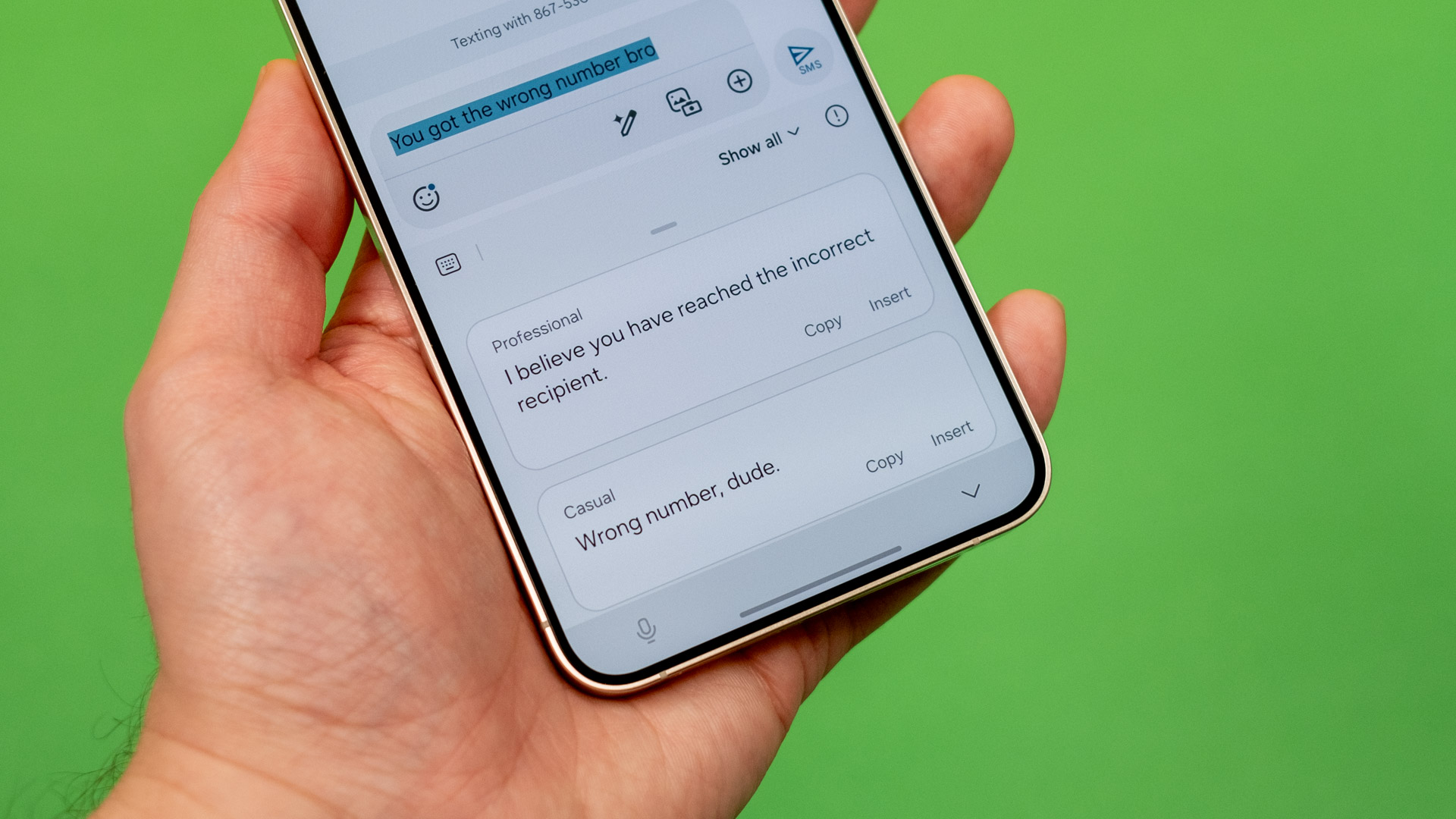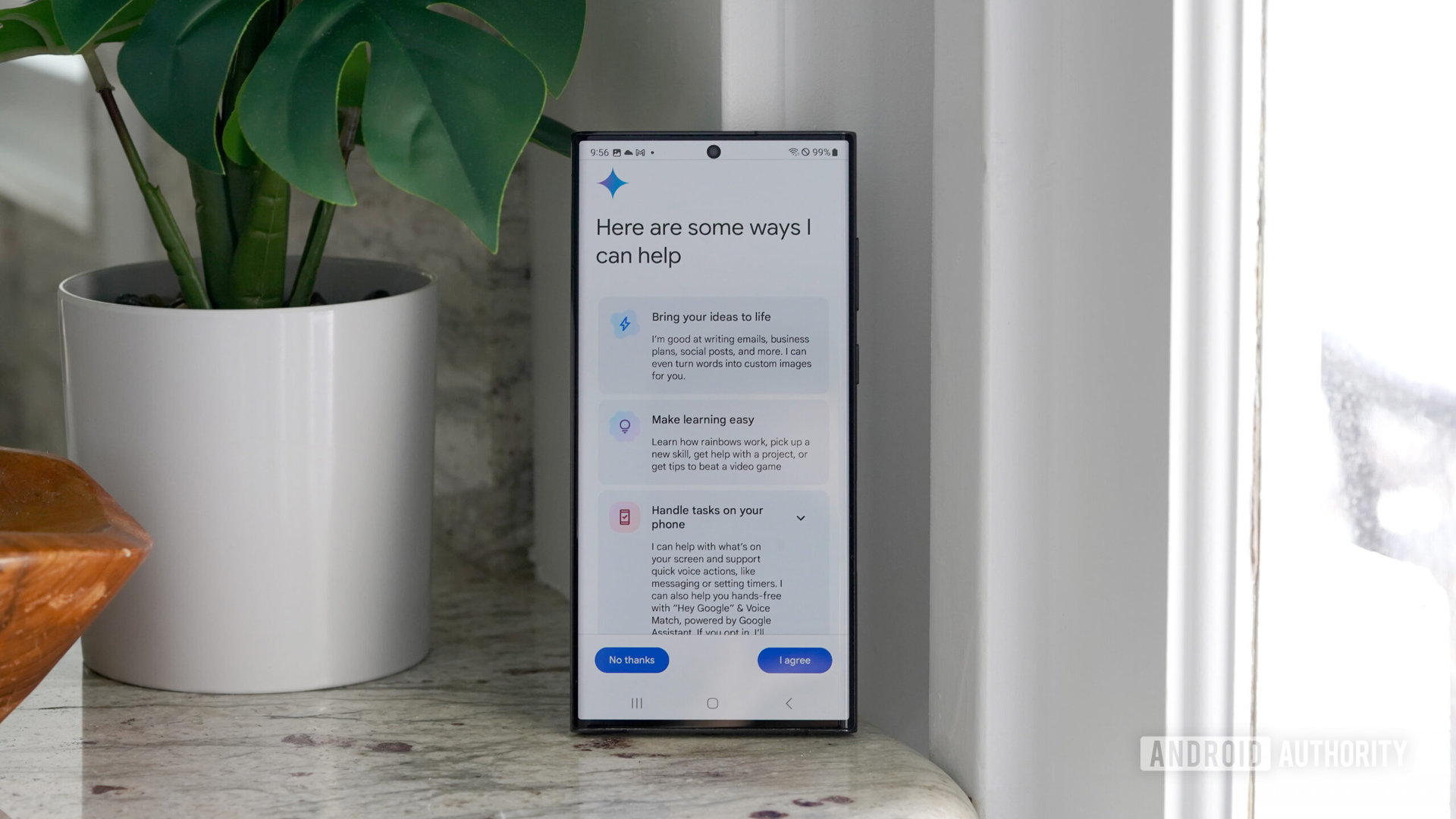
Ryan Whitwam / Android Authority
The chat assistant on the S24 Plus is a sometimes useful part of Galaxy AI.
For better or worse, artificial intelligence will be the cornerstone of smartphones for the foreseeable future. Google’s Pixel 8 and Samsung Galaxy S24 series already incorporate various AI features, while many other Android brands, and even the usually slow-moving Apple, are rushing to make their upcoming phones truly “smart.” Although we are currently in a phase of explosive growth with manufacturers throwing all kinds of features at us, we will soon find out whether consumers are willing to pay a premium for AI in the long run.
The writing is on the wall that at least some mobile AI features will eventually move behind a paywall. Samsung says Galaxy AI will remain free until 2025. While the brand has yet to make a concrete decision on the financial future of Galaxy AI, it hinted that it could at least make more advanced AI features available to paying customers. Google is already charging more for some of its latest artificial intelligence features. For example, video enhancements are only available on the more expensive Pixel 8 Pro due to data center costs. Cloud-based processing, in particular, must be paid for in some way, and “AI subscriptions” seem to be the inevitable outcome.
Are AI capabilities as valuable as a monthly subscription to Netflix or Spotify?
Google’s Gemini offers us the chance to take a peek through the mirror. While the basic AI assistant remains free, advanced features like Help Me Write that work across Docs, Gmail, Sheets, and more are locked into the new $19.99-per-month Google One AI Premium plan. That gets you 2TB of storage and the other benefits of the traditional $9.99 Advanced option, so Google is essentially pricing Gemini Advanced and its various integrations at $10 per month.
$10 a month isn’t expensive, but it’s not cheap if you mainly write emails. The big question AI subscriptions must answer is whether they can provide the same value and day-to-day utility as customers are happy to pay for multimedia and other monthly fees. I’m not sure text editing or enhanced web searches will be enough to convince many people to sign up.

Kaitlyn Cimino/Android Authority
However, Google may be taking the approach of bundling services. Providers that offer AI-enabled capabilities across documents, email, messaging, search, photos, videos, and more will be best positioned to secure subscriptions worth owning. I wouldn’t be surprised if Samsung, Apple, and others are eyeing similar awards.
But why stop with software? Perhaps the stasis of modern hardware and the trend toward long-term software support means it’s time to revisit the idea of smartphones as a service. Would paying around $35 a month for hardware and software be better than buying a $1,000 phone with an AI subscription? Possibly, especially if it guarantees a stable set of features and contains future developments. But it all depends on AI becoming the indispensable tool that some hope it will be.
To be convincing, AI subscriptions must go beyond the basics.
Another option is to run AI functions locally wherever possible, thus reducing long-term server costs and ensuring some control over user-paid functions. But there are limits to the model sizes required for both mobile hardware and state-of-the-art AI processing. Not to mention that cloud computing is everywhere and can run on almost anything, making it easier for companies to reach as many consumers as possible.
Either way, subscribing to add-ons is one thing; Charging consumers to continue using the phone’s advertised features is another matter entirely. For example, turning off Galaxy AI or Video Boost and replacing them with a monthly fee would deal a heavy blow to consumer goodwill and reduce the incentive to purchase future software-based devices. Early AI pioneers need to proceed with caution.
Would you pay to subscribe to your smartphone’s artificial intelligence capabilities?
109 votes